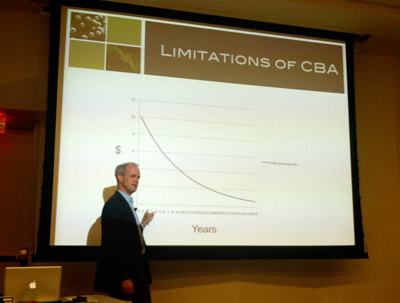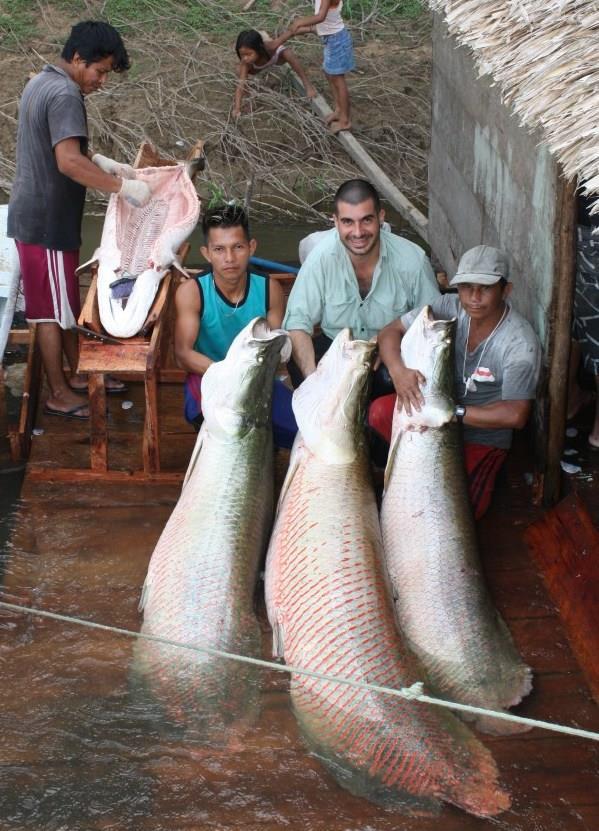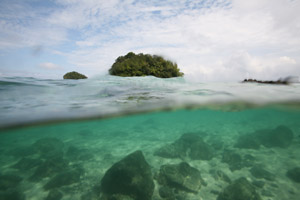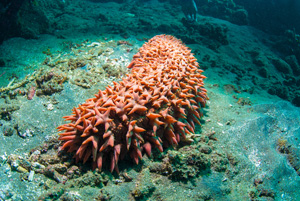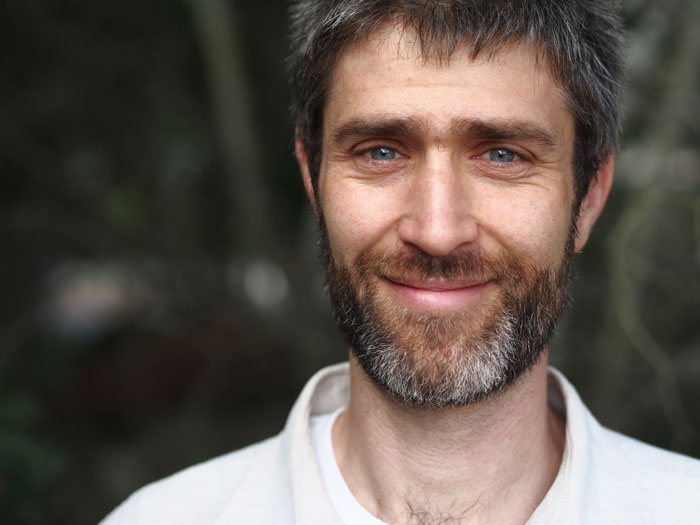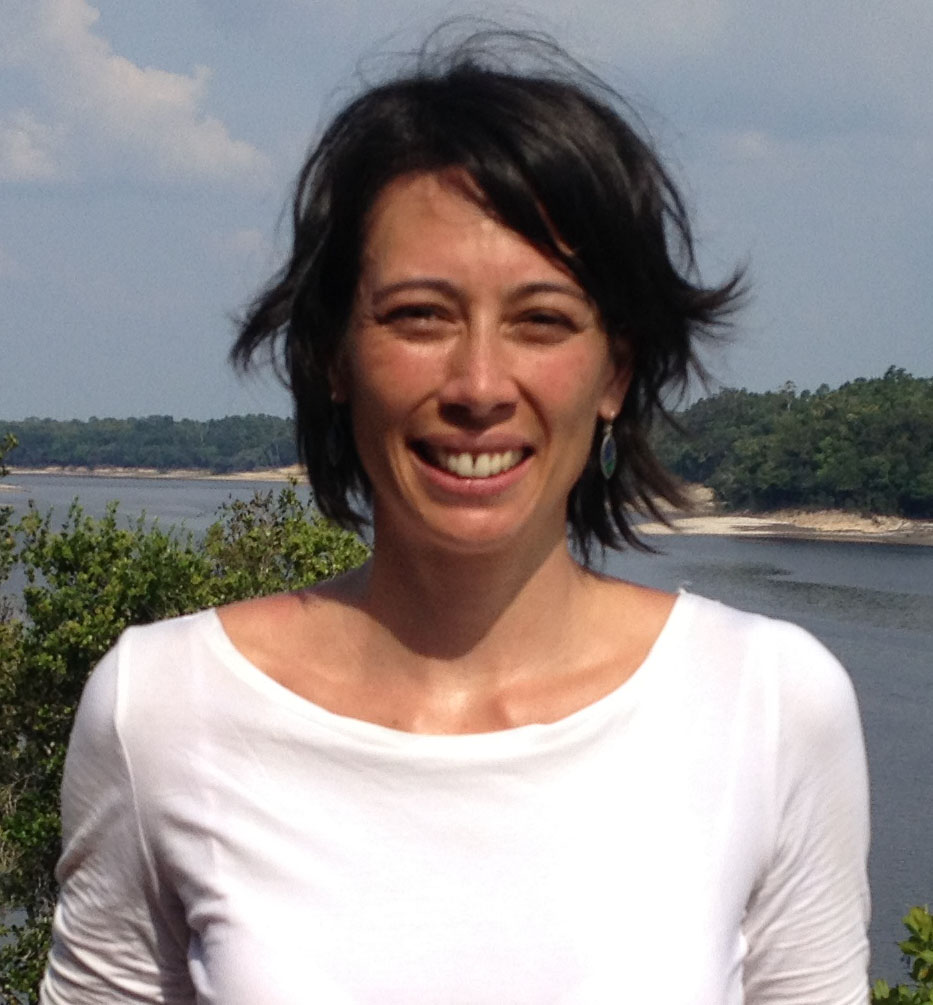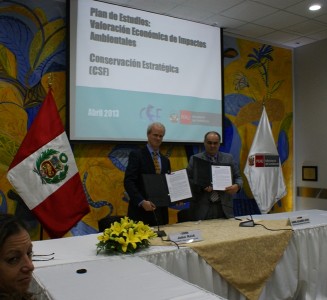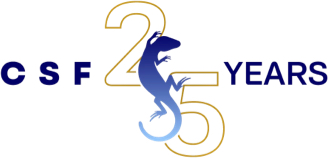News
Last month, we had the opportunity to bring CSF’s economic analysis training to a new audience – the Inter-American Development Bank (IDB) in Washington D.C. The IDB approves over $11 billion dollars in loans each year, and is a major force in shaping the face of development in Latin America. We delivered two training workshops for transport and water sector specialists from various country offices, and a shorter session for IDB Economists based in D.C.
In November, the Margaret A. Cargill Foundation's Environment Program awarded CSF $100,000 as part of our expanding marine initiative. This award will fund a decision-makers workshop and a mentored groundwork field analysis.
Conservation Strategy Fund has been working with traditional communities in Brazil to support low-impact activities in the Amazon region. These activities have subsequently grown into sustainable businesses, from both an environmental and economic perspective. The guidance CSF has given these locally-owned businesses has helped them to grow substantially and aims to eventually contribute to decreased deforestation in Brazil.
Coastal habitats worldwide produce billions of dollars in fishing and tourism income. In drawing up a management plan for one of its premier island sites, the Coiba National Park, Panama’s government was faced with decisions over how to make the most of the island gem’s economic potential without damaging its fragile ecosystems. In 2007, CSF joined the Smithsonian Institution and Conservation International to solve that dilemma.
CSF is opening a program of “office hours” with experts who will help you figure out what to analyze and how. These consultations are free and an exclusive service for graduates of CSF courses..
Here’s how it works: Click on the link below and provide some basic information about the issue, problem, policy or activity you want to analyze. We’ll gather the ideas and set up a meeting for you with a member of our staff or one of our consulting experts via videoconference or telephone.
Examples of analyses we will help you design could include
• cost-benefit analysis of a sustainable development project,
• revenue strategy for a protected area,
• formulation of arguments to confront a specific environmental threat,
• economic valuation of an ecosystem or protected area,
The David and Lucile Packard Foundation recently awarded CSF a grant to expand our ocean conservation work, with a focus on the islands of Micronesia. Packard will join CSF in delivering conservation economics training in Palau, a global priority for protection of reefs and associated coastal ecosystems. CSF will work with environmental managers and decision makers on integrating economic data and insights into management of fisheries and marine protected areas. Complementing the training will be a detailed analysis of sustainability and the distribution of profits from the economically significant sea cucumber industry.
Since he was a young child, Aaron Bruner has been interested in forest conservation. For much of his youth, he had intended to be a conservation biologist, but while at Wesleyan University, he had an economics professor who "blew his mind", and he realized that the best route to accomplish conservation was through the power of economics. It was then that he chose to study economics as an undergraduate in order to be able to speak the language of policy-makers and developers to achieve the greatest impact.
The Gordon and Betty Moore Foundation awarded a grant of $256,000 this month to support CSF's Conservation Economics Initiative. The CEI is a CSF-Duke University effort to spread the effective use of conservation economics to benefit natural ecosystems. Moore's support, along with funds from the John D. and Catherine T. MacArthur Foundation, will be used to set up local hubs where CSF-style conservation economics courses can be delivered by our own course graduates. The CEI will also take CSF's deep in-person training know-how and transform it into online teaching resources to make sure that more conservationists learn the economic essentials and that our students have knowledge at their fingertips when they need it.
CSF welcomes Susan Edda Seehusen, our new Executive Director of CSF-Brasil. Since May 2013 she has been working in CSF-Brasil's new office in Rio de Janeiro. She brings to the team five years of experience with German development cooperation organizations (GFA Consulting Group, GIZ and KfW), where her work focused on natural resource management in tropical forest regions, economic instruments for environmental protection, payment for ecosystems services and the economics of ecosystems and biodiversity.
On April 29, CSF signed a convenio marco - an umbrella collaboration agreement - with Peru's Ministry of Environment (MINAM). For more information about this exciting partnership, click below:
http://www.minam.gob.pe/index.php?option=com_content&view=article&id=24…

